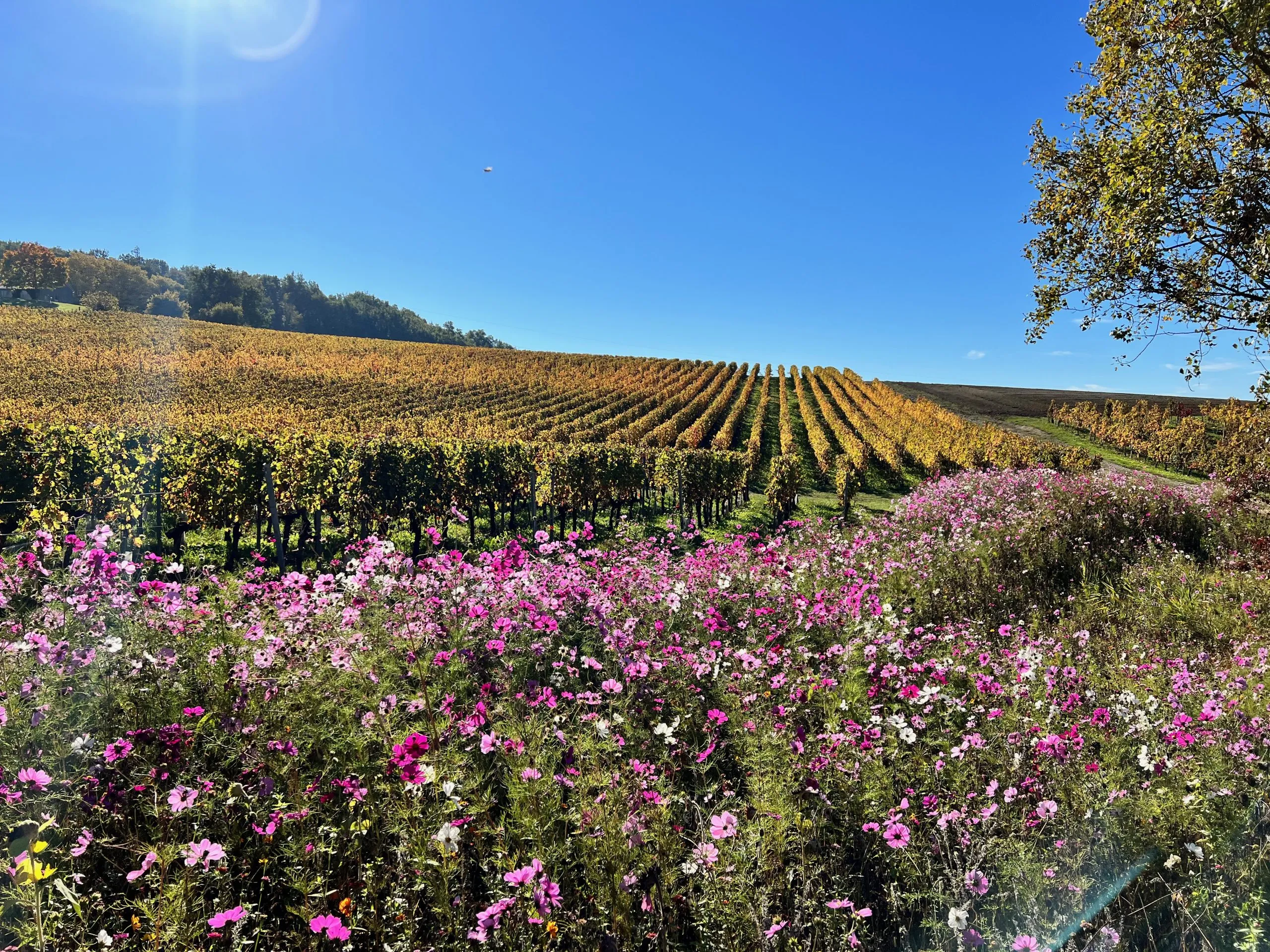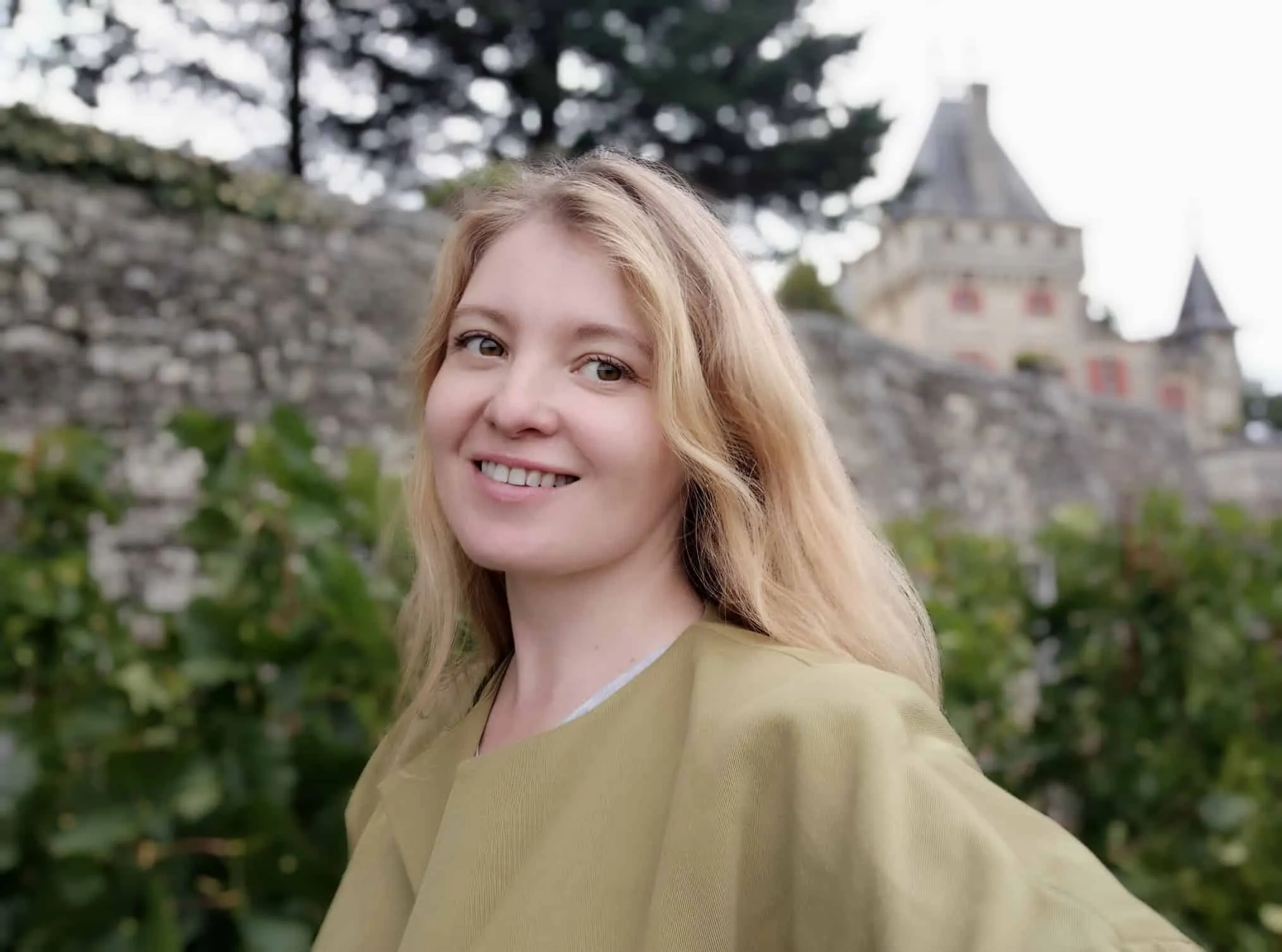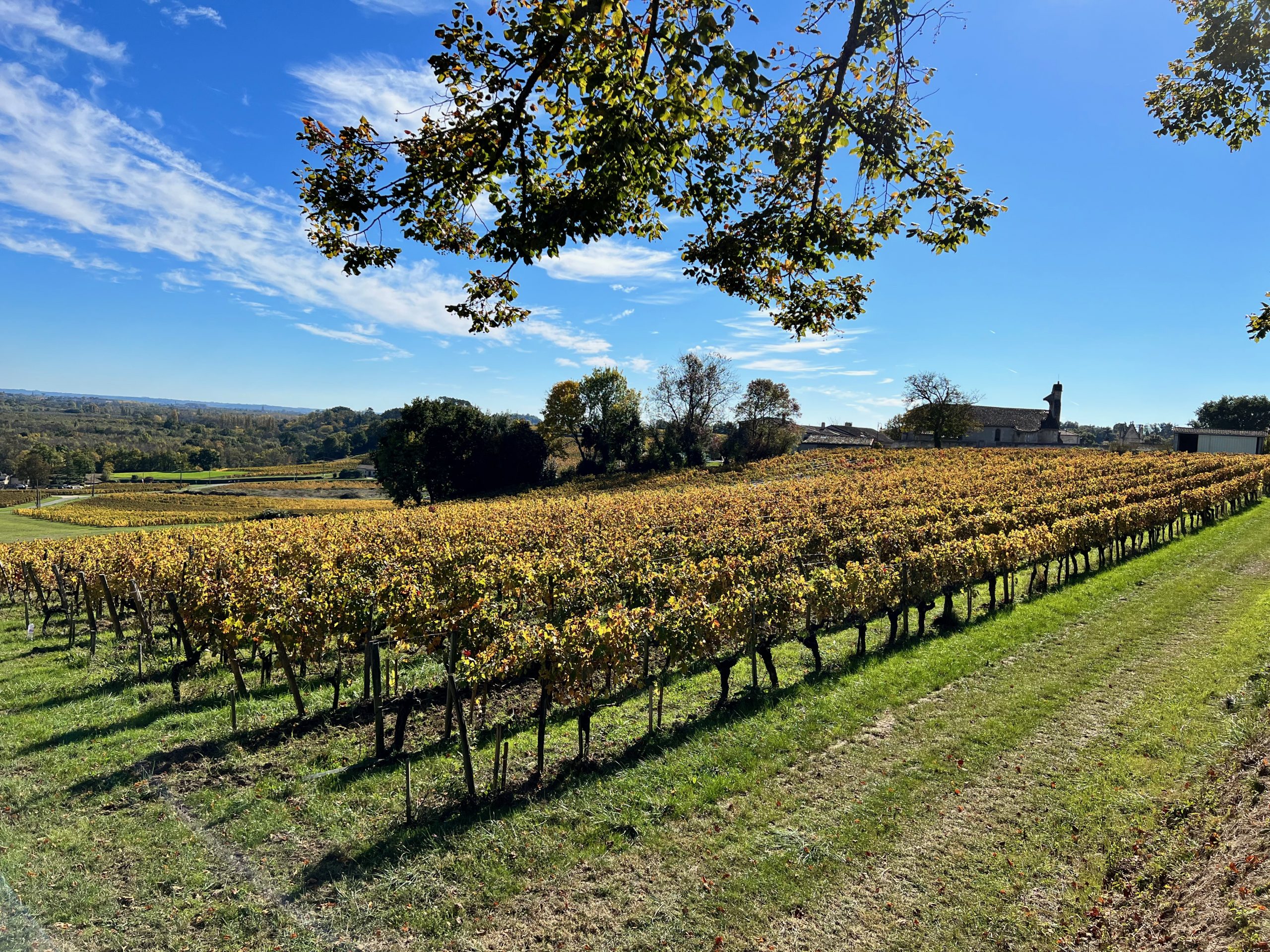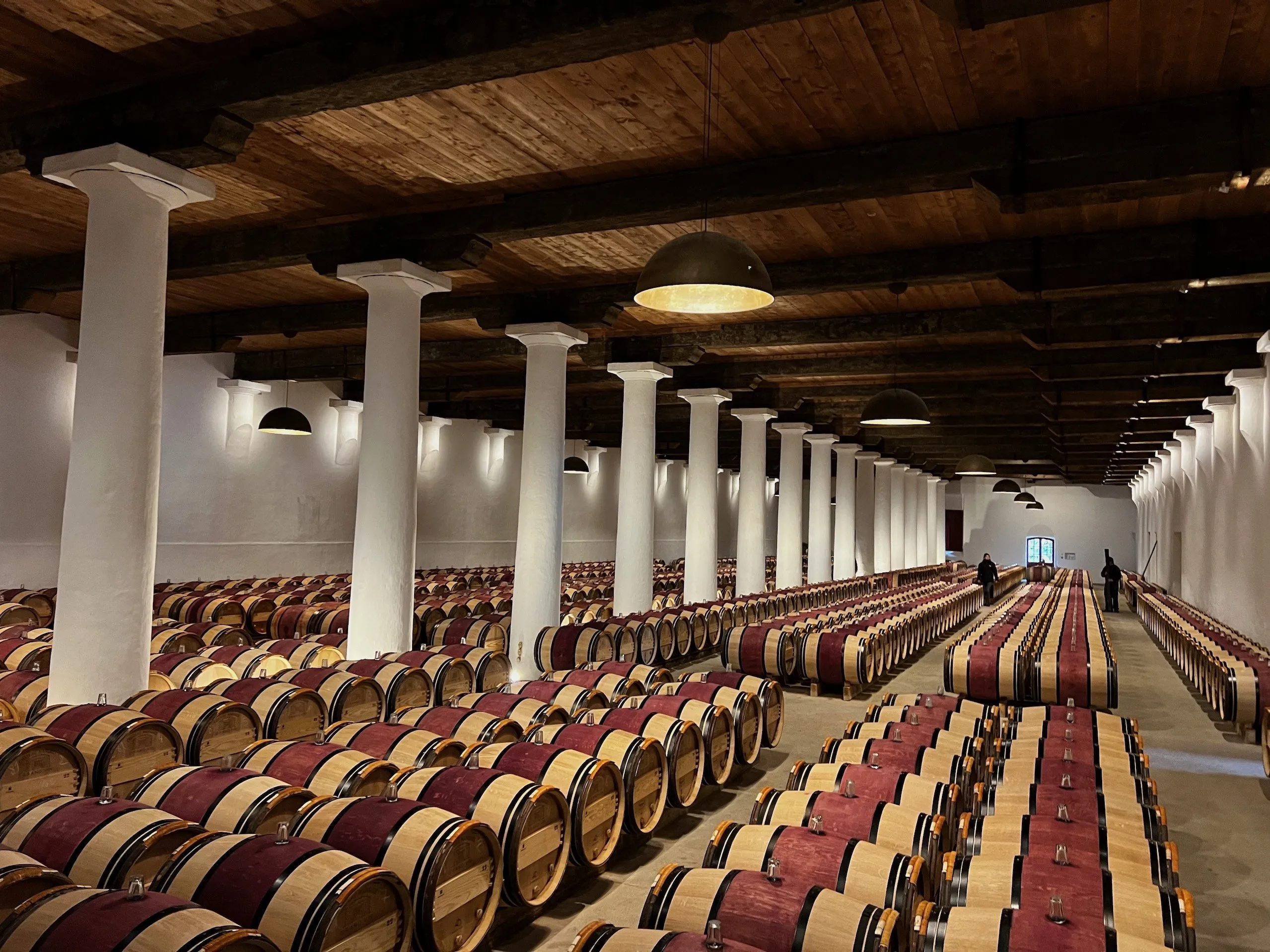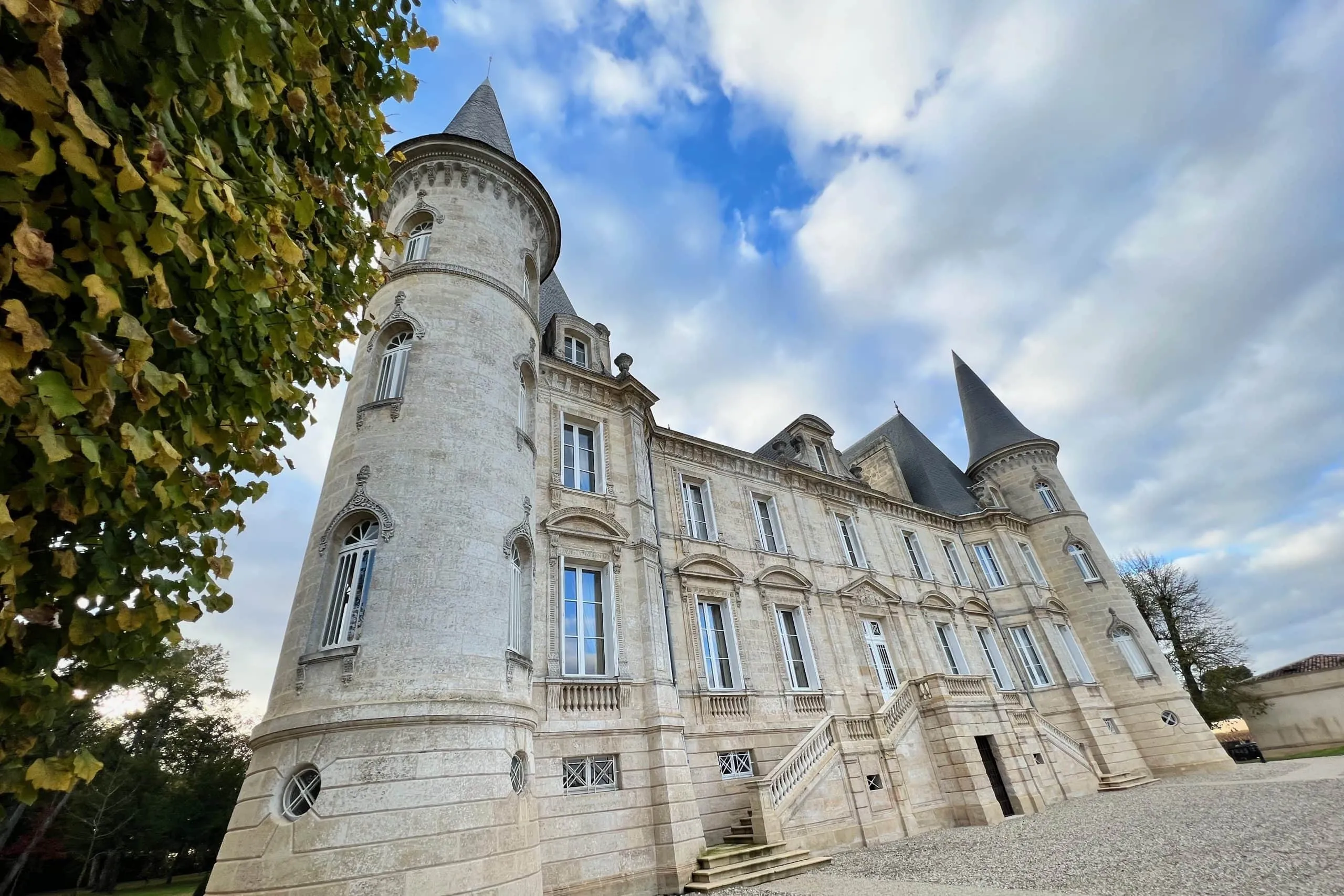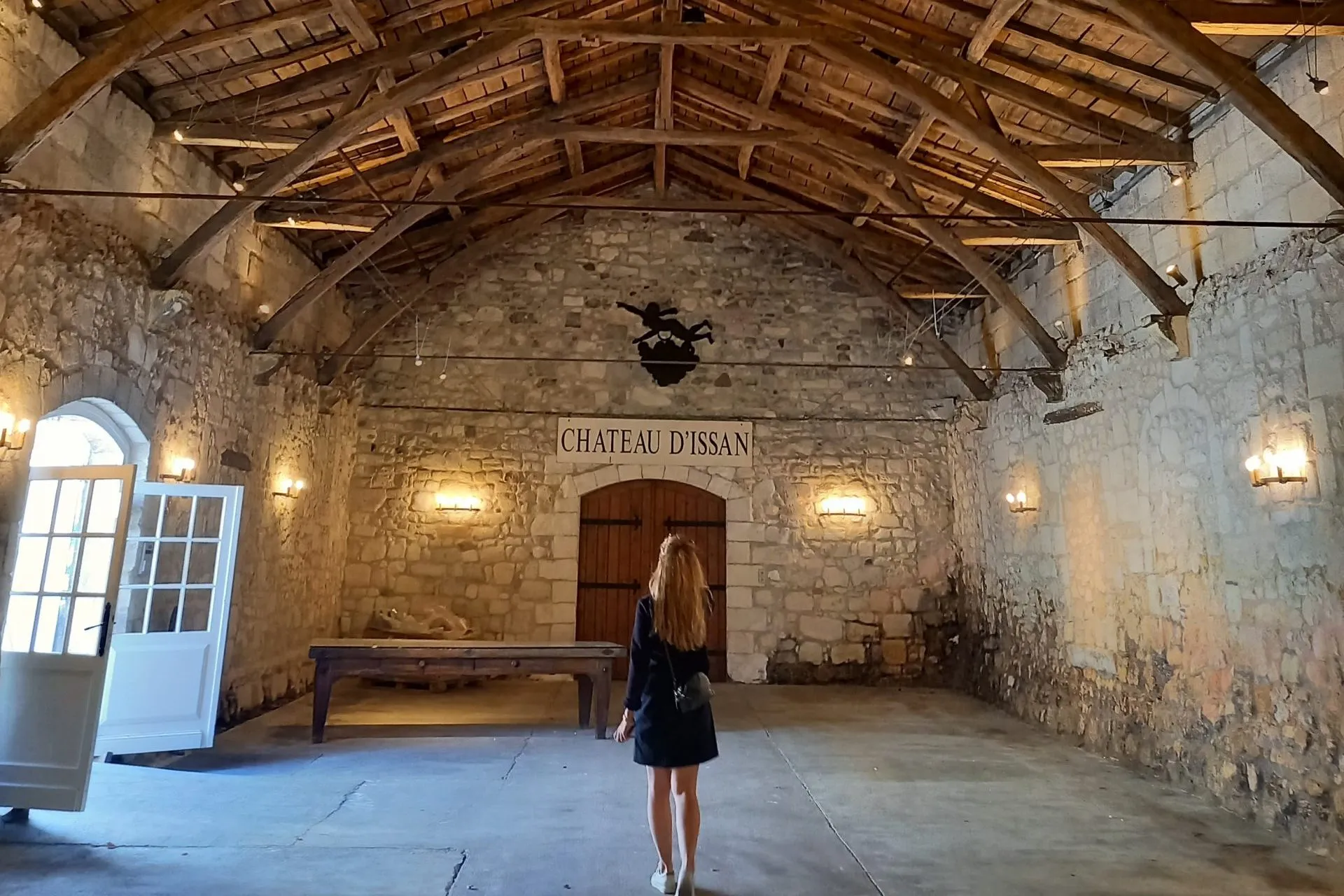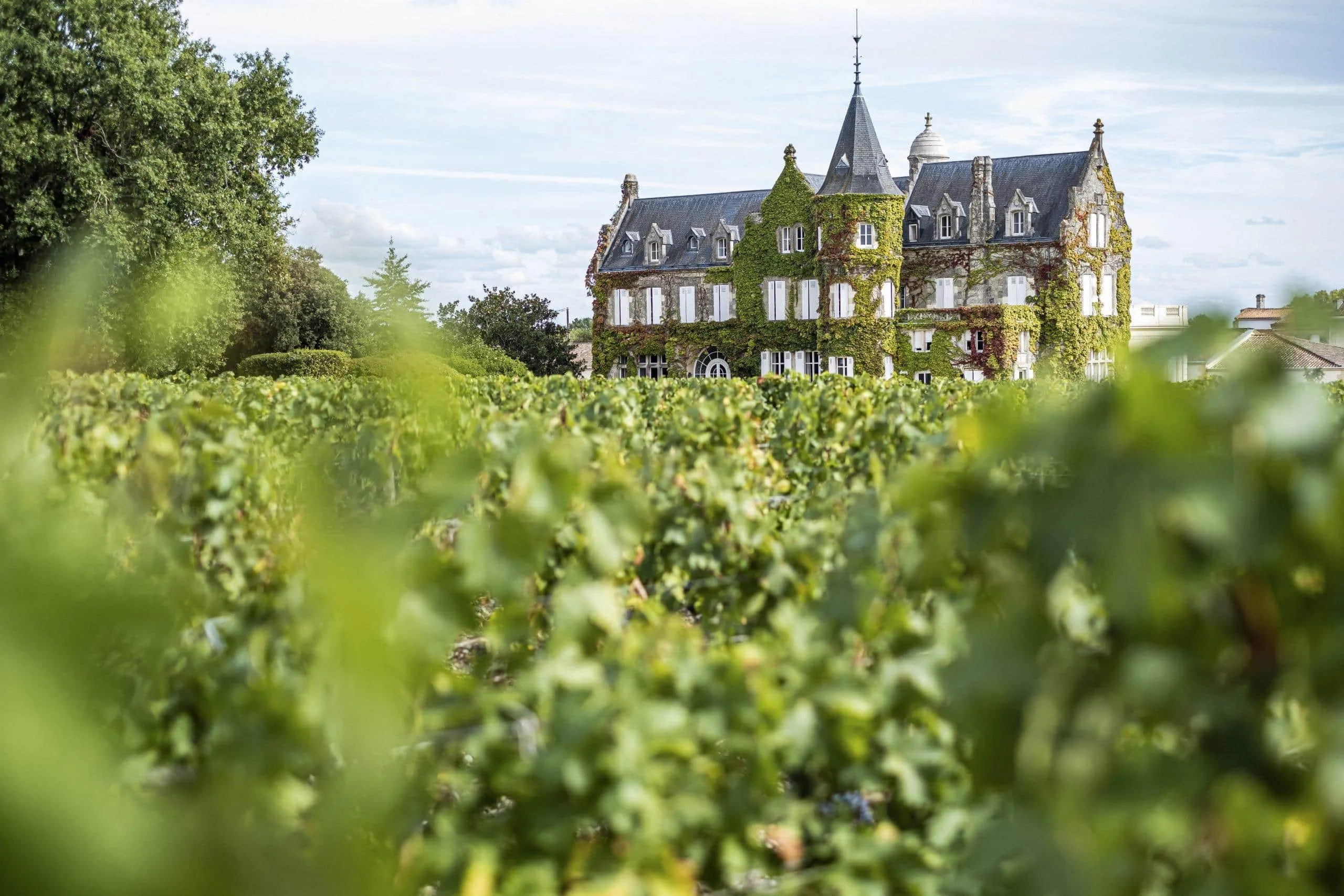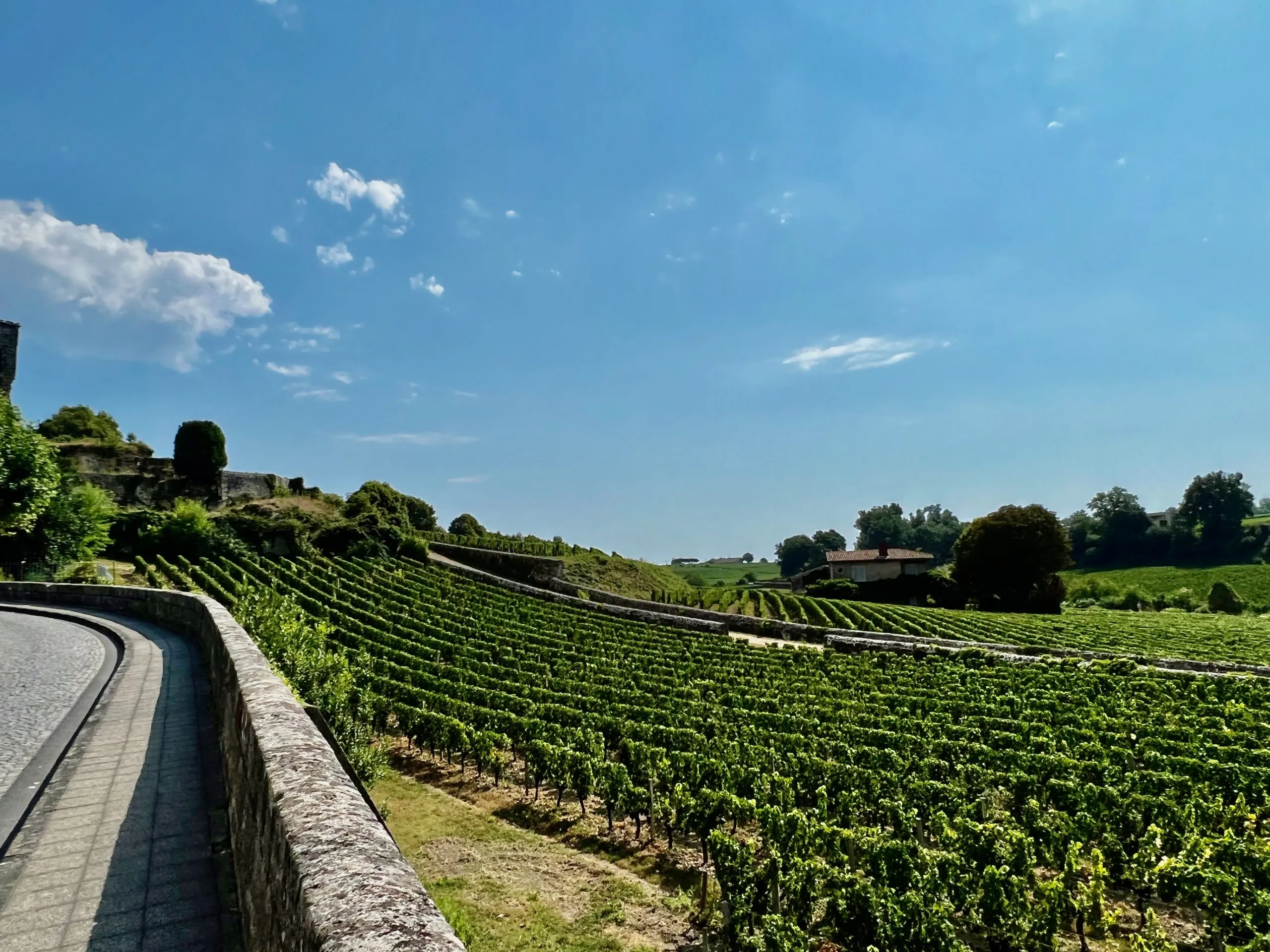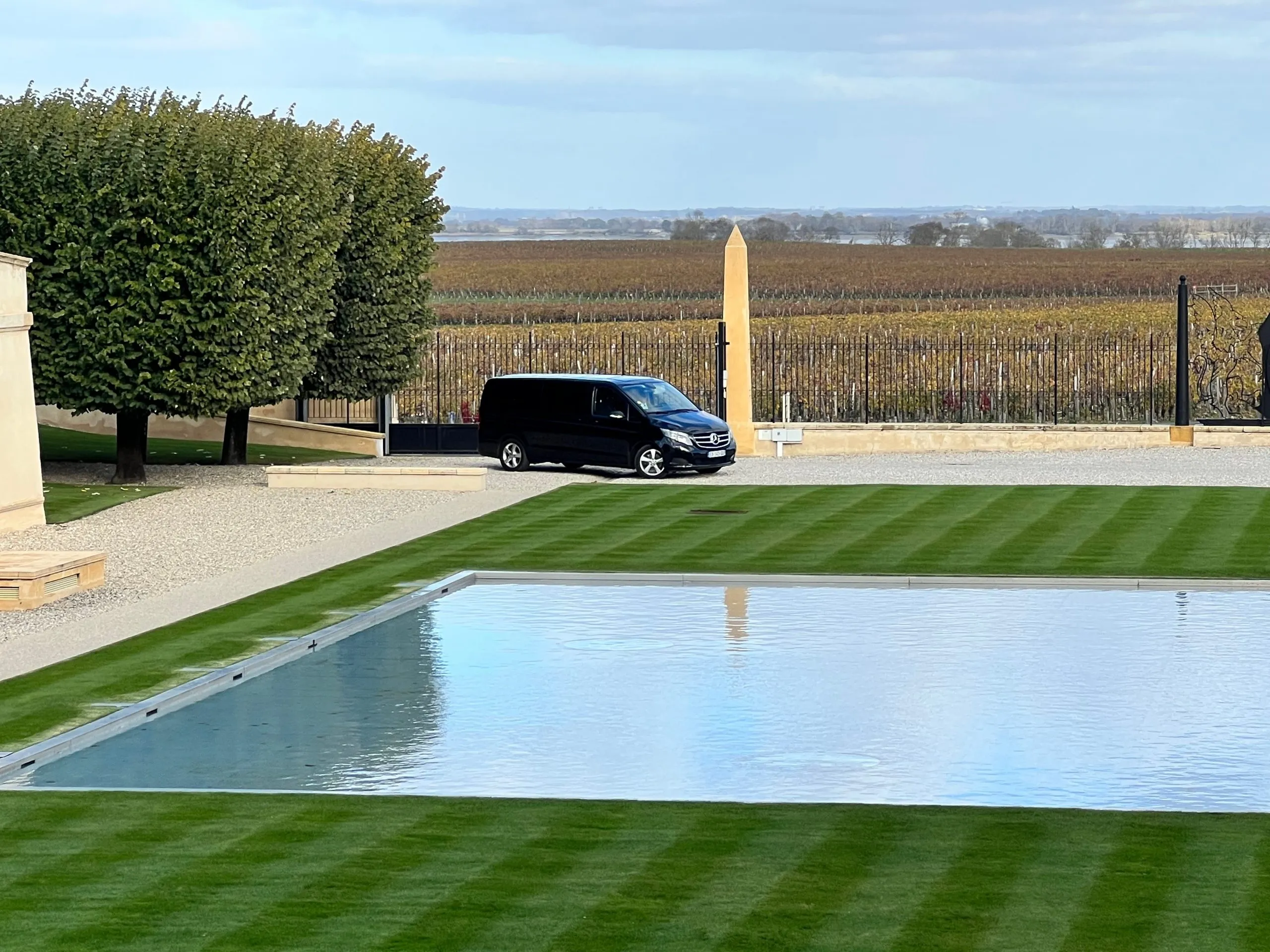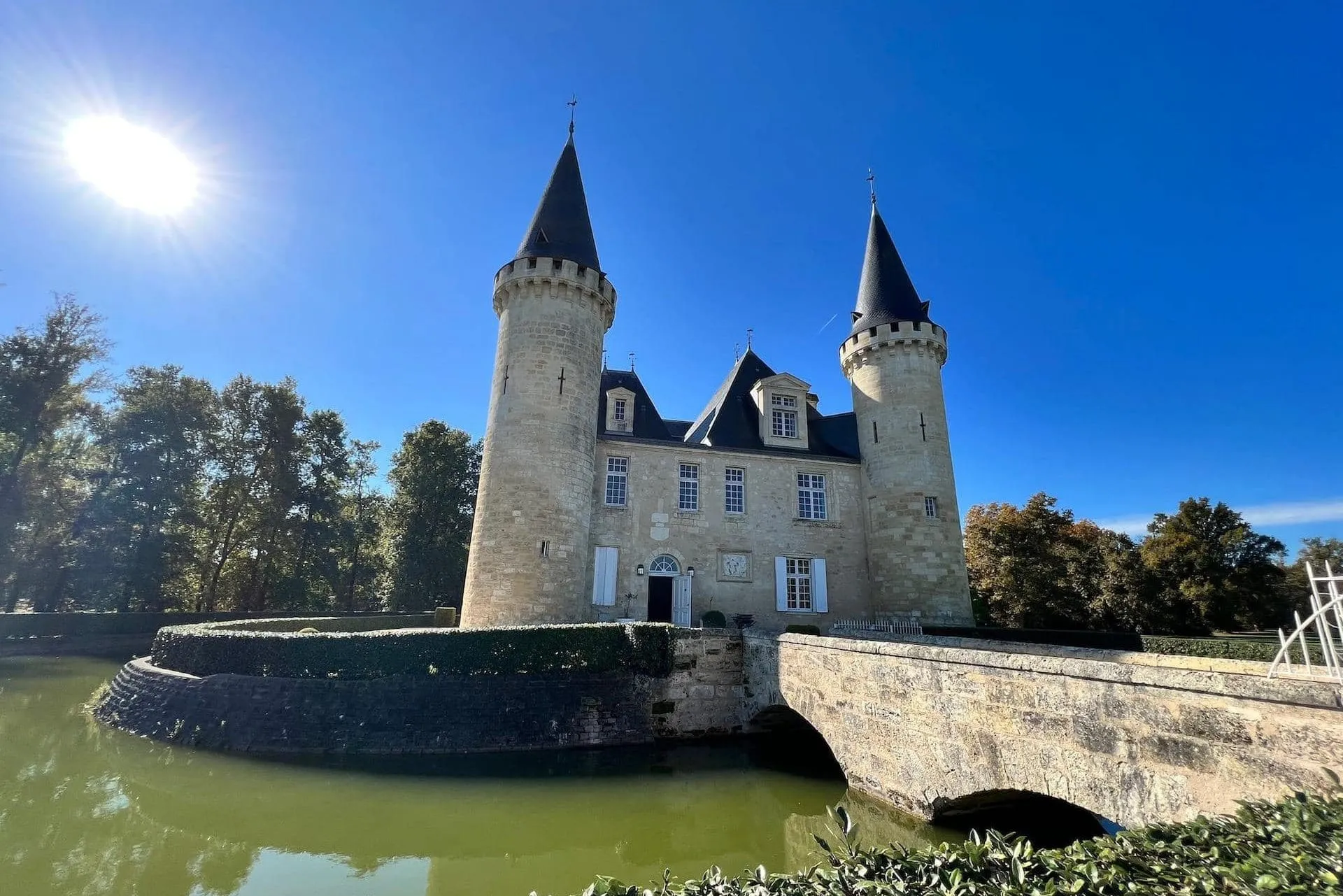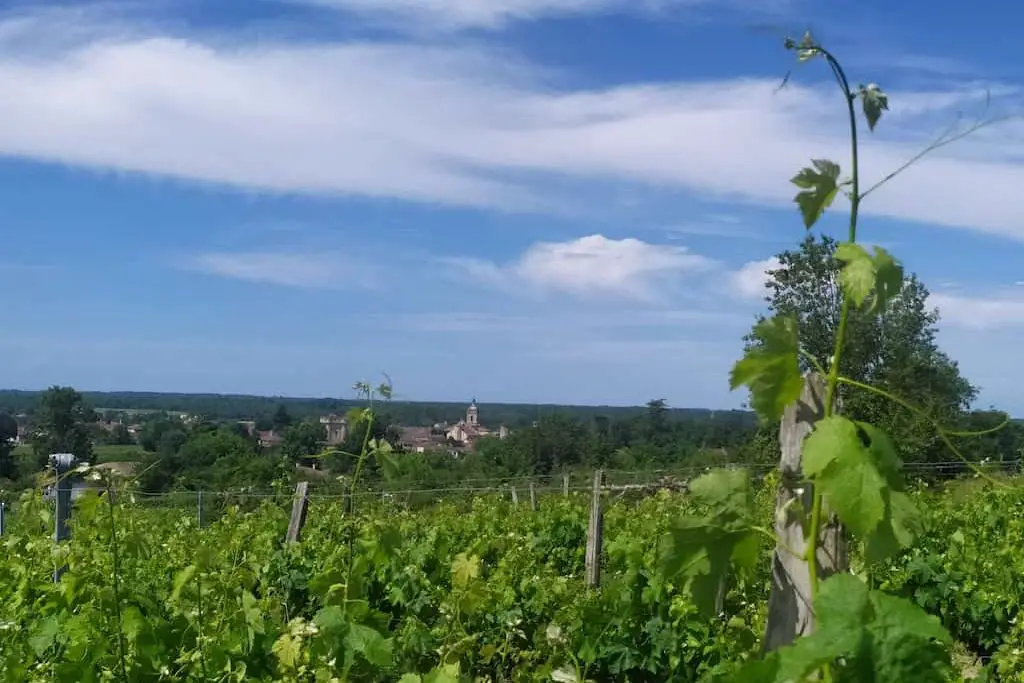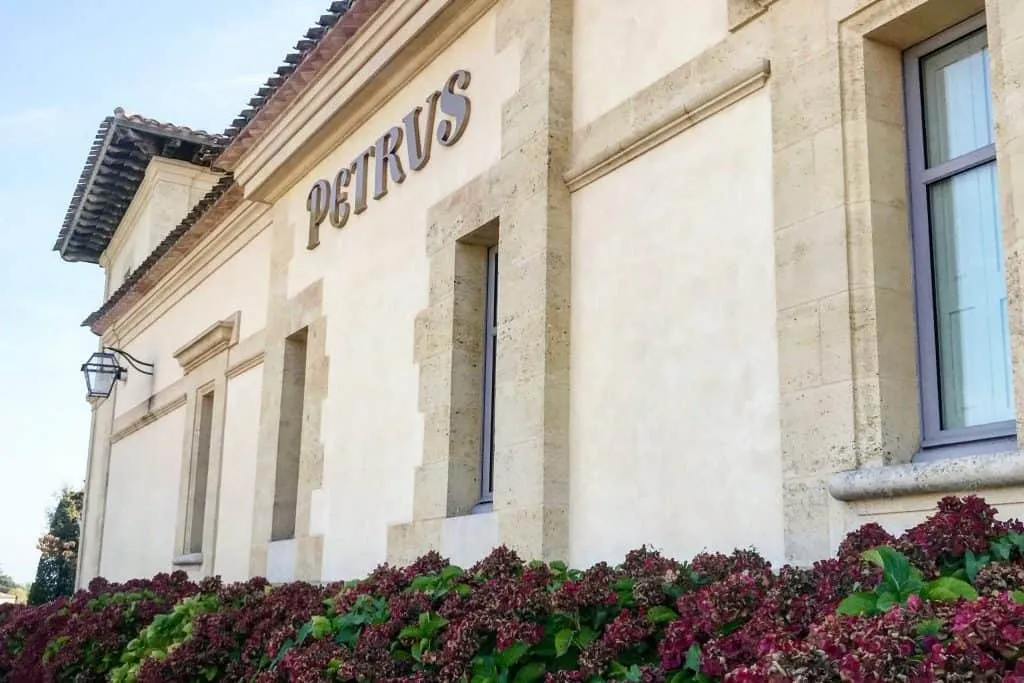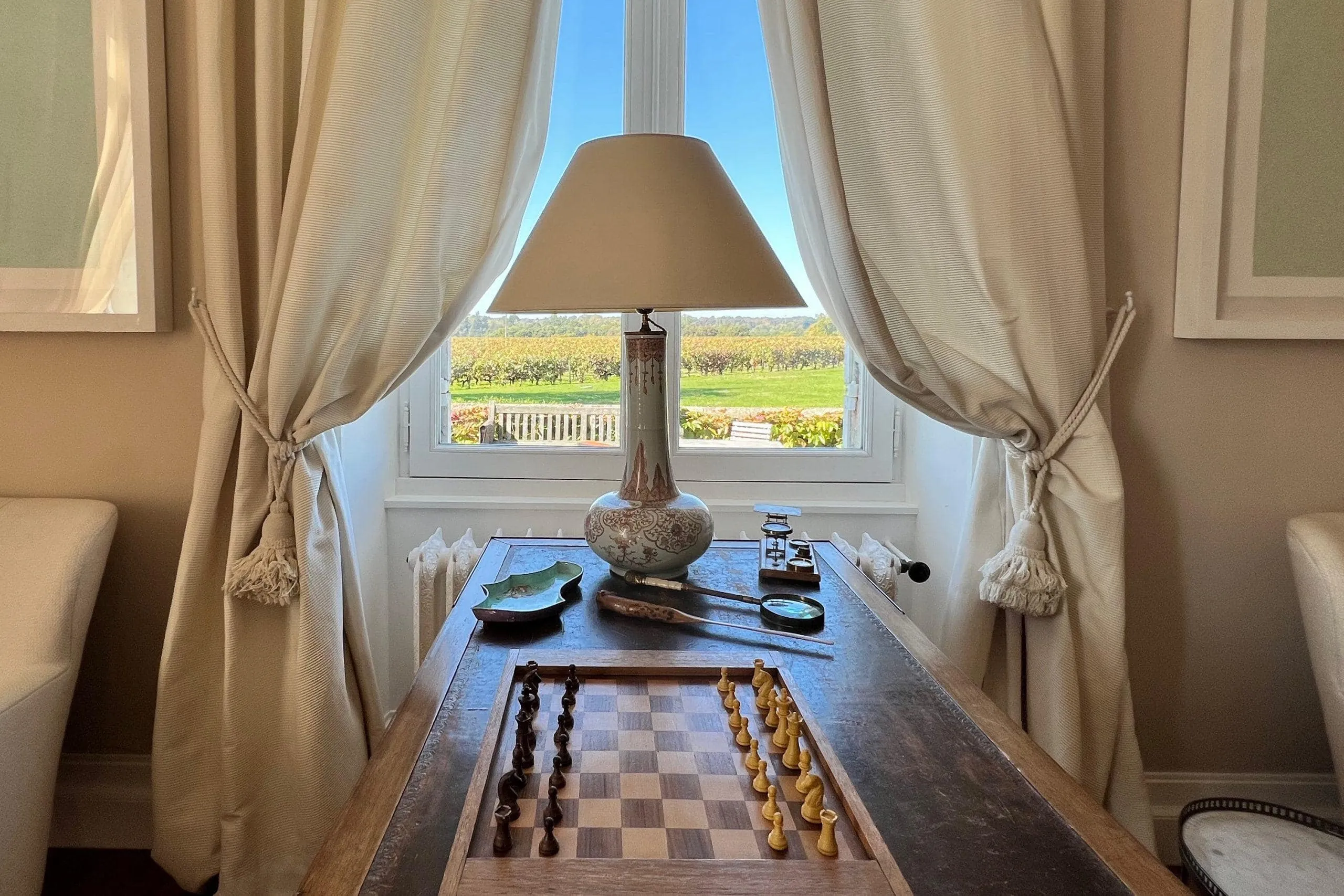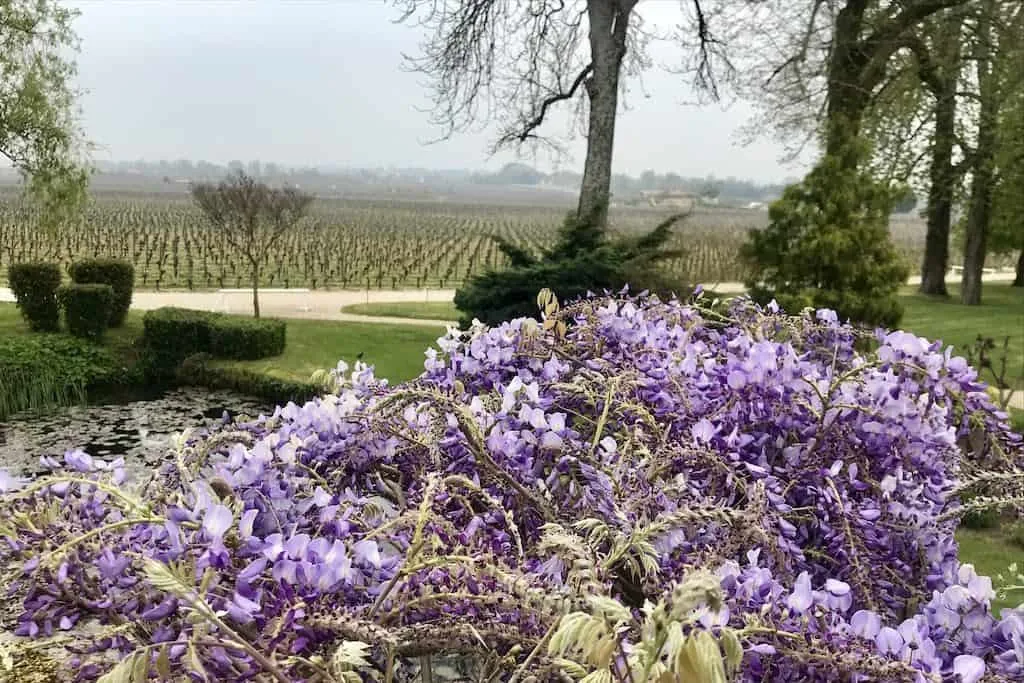While exploring Bordeaux a stop by an organic or biodynamic vineyard can be an eye-opening experience. Learn about new farming techniques, the terroir of Bordeaux, and what makes these unique wines so special during your Bordeaux wine tours.
Table of Contents
What Is Organic Wine?
There is a lot of confusion for wine consumers about what the difference is between organic, biodynamic, and natural wine. The key difference in these wines is what stages of winegrowing and winemaking certain techniques are used.
In order for grapes to be certified organic, growers must not use chemical pesticides or herbicides in the vineyards. For Bordeaux to be certified organic, it must first go through three years of using organic farming techniques to ensure all previously used chemicals are no longer present in the vineyard.
Without harsh chemicals being sprayed on the fruit, the final product is a cleaner product to consume. Additionally, organic wine contains less sulfites in the final product to preserve the vines.
Organic wines in Europe are marked with a green AB (Agriculture Biologique) label.
What is Natural Wine?
During the natural winemaking process, no sulfites or additives are added to the fermenting grape juice. The fermentation process is started by natural yeasts found in the grape as opposed to added yeast strains.
Natural wines will also be organic as they must be made from grapes that were farmed organically. Not all organic wine is natural, but all natural wine is organic.
Natural wine is not very common in Bordeaux due to natural wine’s inability to age gracefully. Bordeaux wines are notoriously famous for their aging potential and the beautiful nuances they acquire after 10-20 years of bottle aging.
My favorite spot to taste natural wines in Bordeaux city is Au Bon JaJa.
What Is Biodynamic Wine?
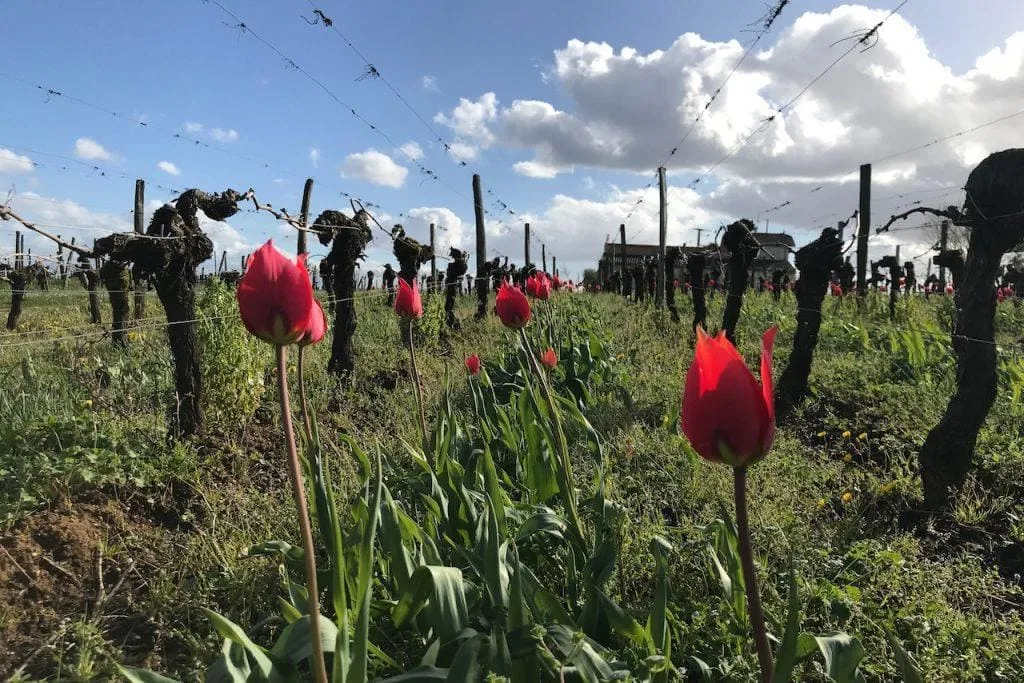
Biodynamic farming focuses on an ecological approach to growing produce that views the ecosystem of a vineyard or farm as one organism. Therefore, all aspects, from the health of the soils to the animals that graze on the grass surrounding the vines, work in unison to create one product.
Often, vineyards will track the ecosystem’s biodiversity on the property to ensure that each bug, bird, and bat is helping to contribute positively to the vine growing process. Among other techniques, instead of using fertilizer in the soils, biodynamic vineyards will use natural animal manure.
Biodynamic farming also utilizes centuries-old techniques of tracking moon cycles to determine when it is best to plant, prune, or harvest grapes. While both biodynamic and organic wines use grapes that were not sprayed with pesticides, biodynamic wine is not considered organic unless its vineyard has additional certifications.
In France, the producer associations, Demeter and Biodyvin, award the biodynamic label based on their criteria.
Does Bordeaux Make Good Organic Wines?
While organic wine production has become popular throughout the world and France, Bordeaux is lagging behind other famous French wine regions.
As of 2021, only 1.4% of Bordeaux vines were cultivated using biodynamic methods.
Many grape growers will cite the weather as their primary concern about going organic, as the Bordeaux region often falls prey to various molds and mildews due to its humid climate. Still, many pioneers are leading the way in the organic wine industry making high-end, delicious organic Bordeaux wines.
Other responsible producers use sustainable methods as much as possible even though they are not fully certified as organic.
Book your Bordeaux wine tour
What Are The Best Organic Wineries in Bordeaux Region?
If you are looking to explore organic and biodynamic wineries while visiting Bordeaux, here are some ideas.
The Right Bank - Saint-Emilion & Pomerol
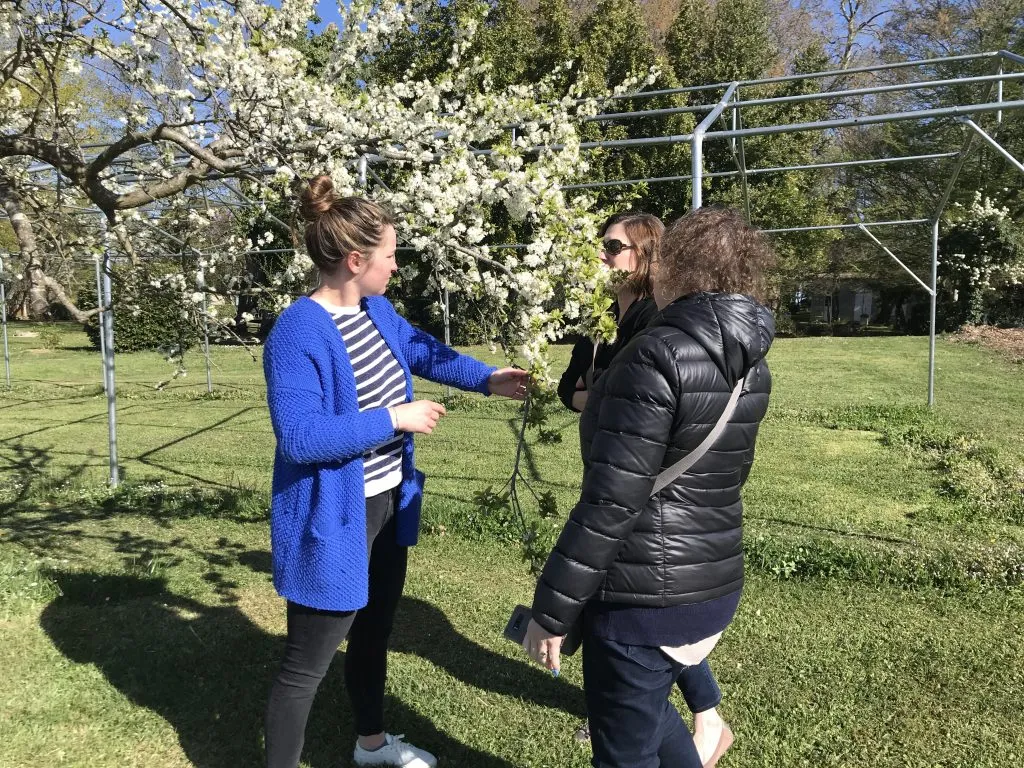
Located half a kilometer away from the charming and historic village of Saint Emilion, Château Coutet is a family-owned château run by the David Beaulieu family for over 400 years.
Saint Emilion’s landscape is UNESCO protected, and this winery seeks to honor the land by utilizing organic wine production techniques. No chemicals are used in the vineyard and all harvesting is done by hand, ensuring that each grape is picked at the optimal time. The estate strives to promote biodiversity at the vineyard. The winery is surrounded by trees and bushes, there are fruit trees and wild tulips between the vines.
Certified organic in 2012, Château Coutet is on our list of Top 10 Wineries To Visit In St. Emilion.
I recommend a visit to Château Coutet for those who look for authentic experiences in Bordeaux. Book a private tour at Château Coutet and get connected with nature in their vineyard, taste their unique cuvee guided by one of the family members, and pet their friendly dog.
Château Fonplegade, Saint Emilion
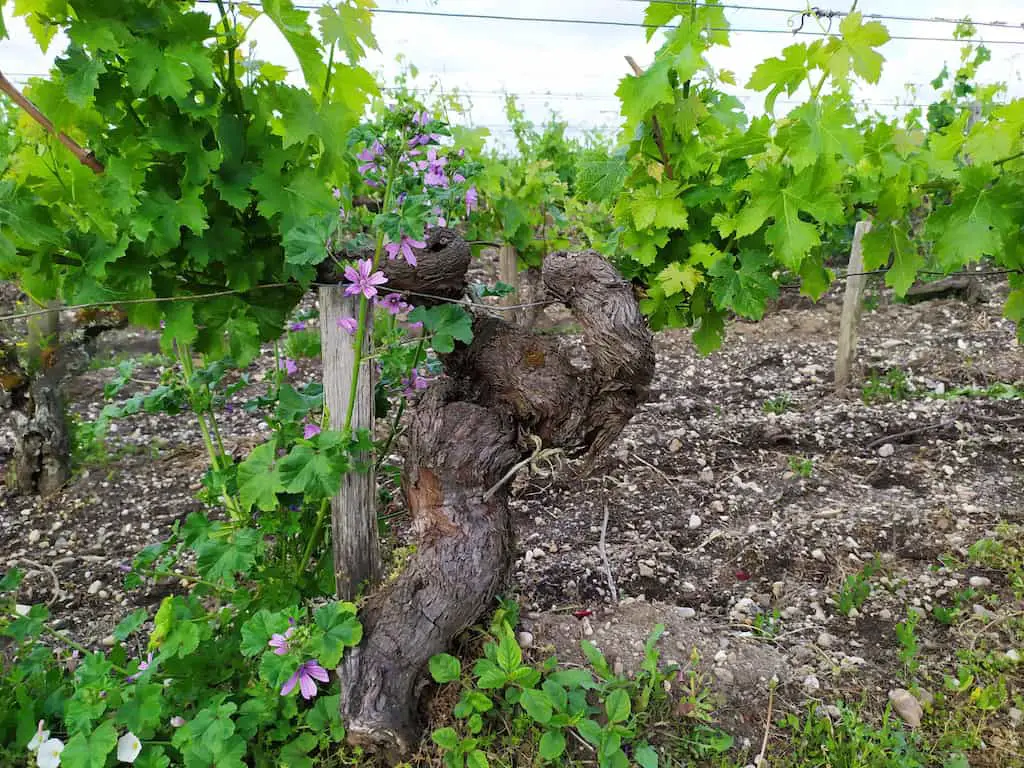
Americans Denise and Stephen Adams were charmed by a family vineyard whose origins date back to the 13th century and acquired Château Fonplégade in 2004. The 45.5-acre vineyard located on the southwestern slopes of the Saint-Emilion plateau is predominantly planted with Merlot and some Cabernet Franc.
Château Fonplegade obtained its organic certification in 2013 and its biodynamic certification in 2020. In their vineyard, you will find not just grapes, but also sheep, chickens, and honey bees that all help contribute to the biodiversity in the vineyard.
I love the personalized experience that Château Fonplegade offers to its visitors. You get to see the vineyards from multiple points and meet the owners.
Château Guadet, Saint-Emilion
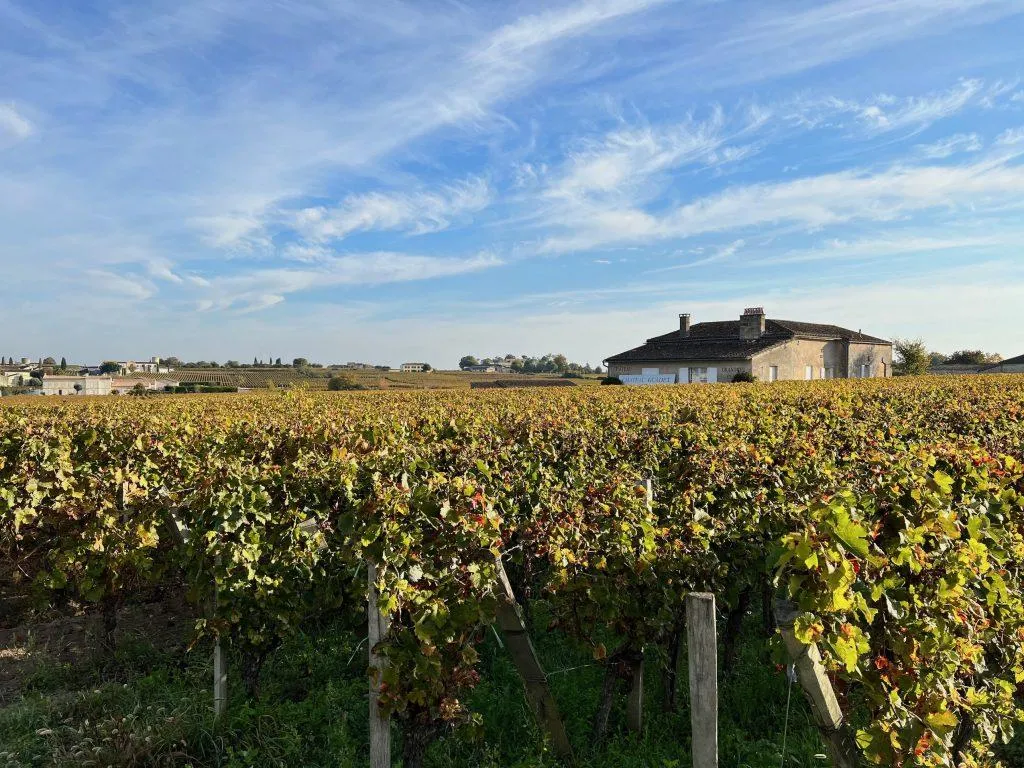
Château Guadet is a vineyard located in the heart of Saint-Émilion. Guy-Petrus Lignac and his son Vincent have been running the family vineyard biodynamically since 2011 and obtained its certification under the Biodyvin label in 2015.
Château Guadet uses natural green manures, biodynamic preparations and homeopathy to treat the vines. The vinegrowers promote biodiversity by planting hedges and fruit trees around the vineyard.
A surprise awaits you during your visit to Château Guadet. The owners will show you their treasure – the mysterious underground caves where thousands of bottles are aged in perfect conditions.
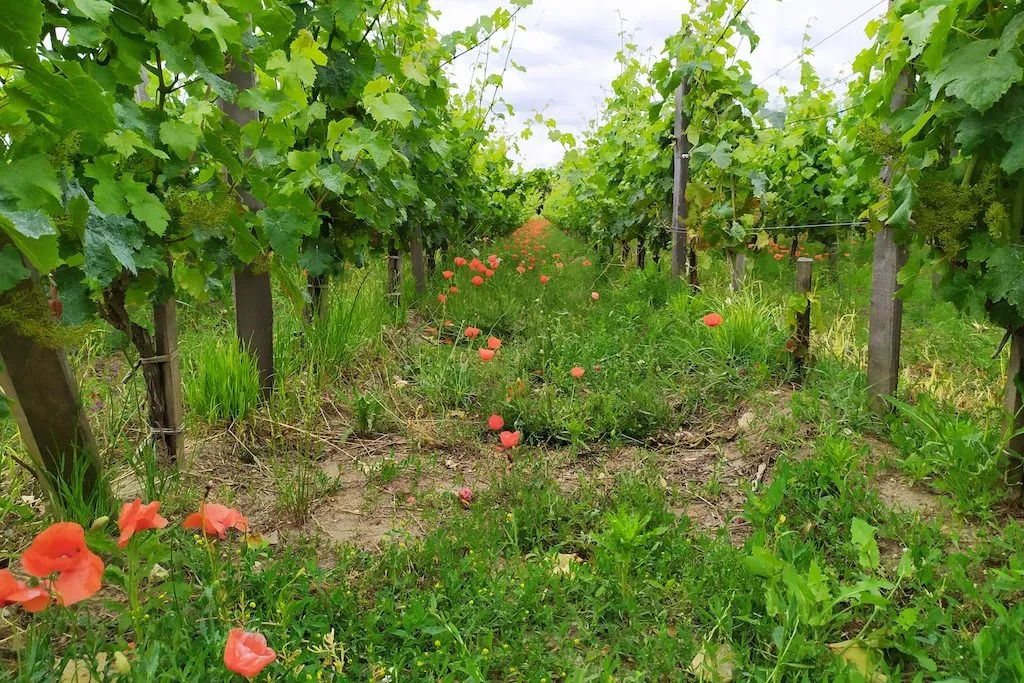
Château Ambe Tour Pourret, Saint-Emilion Grand Cru, is impossible to miss on your way to Saint-Emilion.
A little caste with a tower dating back to 1811 is surrounded by 5 hectares of organic Merlot and Cabernet Franc vineyards, the chateau got certified organic in 2015.
You can visit this Bordeaux chateau for a quick tour and a tasting or attend a cooking class.
The winery is extremely popular with tourists. Be prepared for large groups.
Château Fonroque, Saint-Emilion
This Saint-Emilion Grand Cru Classé cultivates 80% of Merlot and 20% of Cabernet Franc. Alain Moueix agricultural engineer and oenologist inherited Château Fonroque and Château Mazeyres in Pomerolin and began biodynamic cultivation at the two estates in 2002 and 2012, respectively.
Certified in organic agriculture since 2006 and in biodynamic agriculture since 2008. The wines of Château Fonroque are naturally rich with a refined mouthfeel, outstanding freshness and elegance. Their long finish is a guarantee of harmonious ageing.
Château Gombaude-Guillot, Pomerol
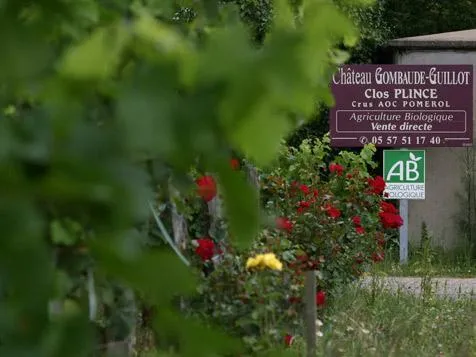
Château Gombaude-Guillot is producing wine in the heart of the Pomerol plateau since 1860s.
As a pioneer in the organic wine-making industry, this family winery has been made its first organic vintage in 2000.
The Left Bank - the Medoc
Château de Côme, St. Estèphe
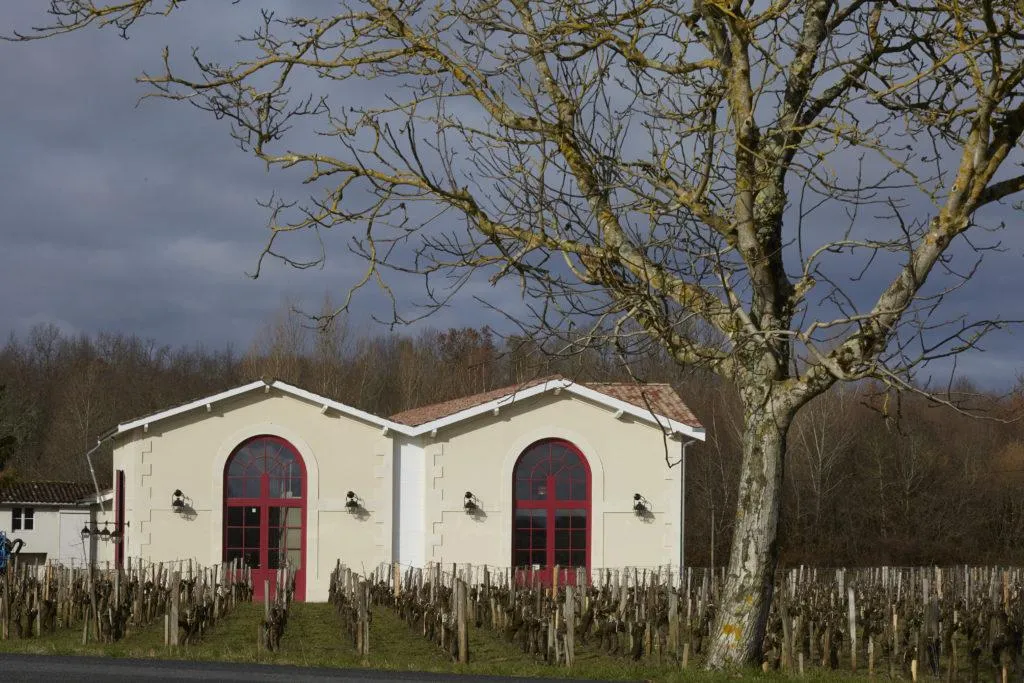
Château de Côme is the first certified organic winery in the prestigious St. Estèphe region in Bordeaux and has set a standard for wine production for many years. The winery is also the only certified organic producer among cru bourgeois of the Medoc.
If the setting of this winery doesn’t leave you speechless, their wine sure will. Tour this special winery and enjoy a tasting of their best organic vintages during your visit.
The objective of Château de Côme is to create an exceptional wine in small quantities.
Château Beau Rivage, Ludon-Médoc
Located in the municipalities of Macau and Ludon-Médoc this estate of fifteen hectares of vineyards has been certified organic since 2011.
The wines of Château Beau Rivage and Clos la Bohème made at the estate are made using manual harvesting, careful selection and sorting, plot by plot vinification, and aging for 16 to 24 months in barrels.
Château Pontet-Canet, Pauillac
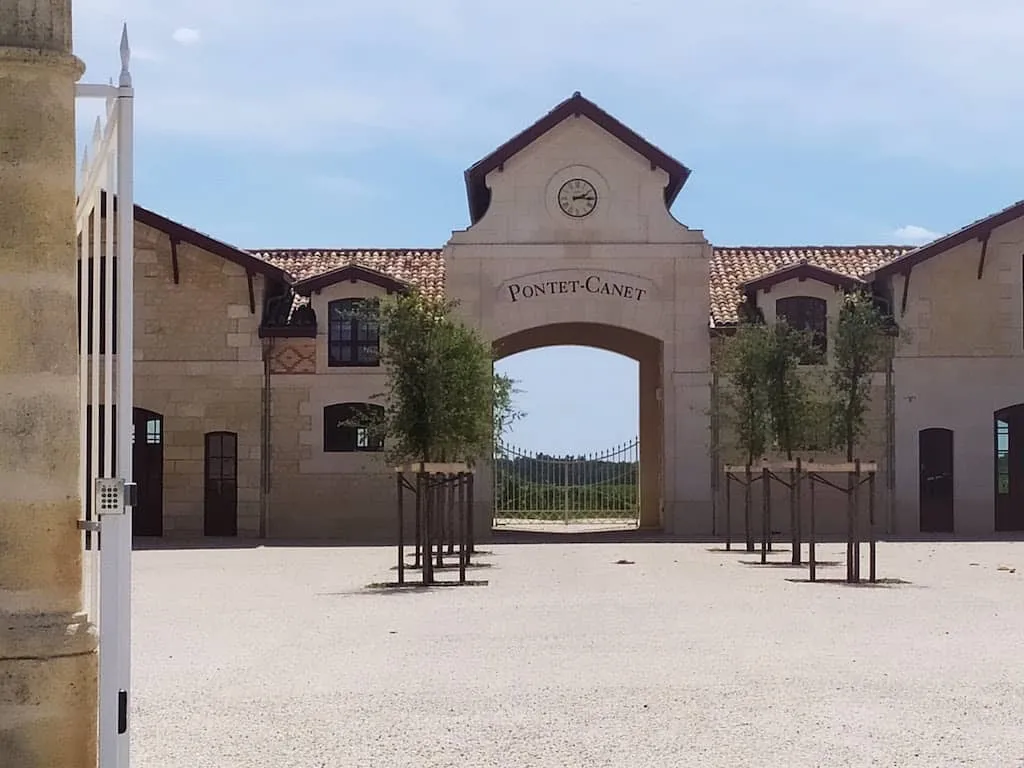
The 1855 Grand Cru Classe, Château Pontet-Canet has been a pillar of wine production in Pauillac for the last three centuries. Château Pontet-Canet’s first priority is honoring the fruit they produce, and one way of doing that is by using organic farming principles.
In 2005, Pontet-Canet vineyards were converted to biodynamic farming. In 2010, the wines of Château Pontet-Canet were awarded organic and biodynamic farming certification becoming the first Medoc Grand Cru Classe to obtain double certification.
Today the chateau uses horses to work its soils and to spray infusions and apply plant-based treatments in the vineyard. Also, at the chateau you will find a room full of herbal teas where natural treatments are prepared.
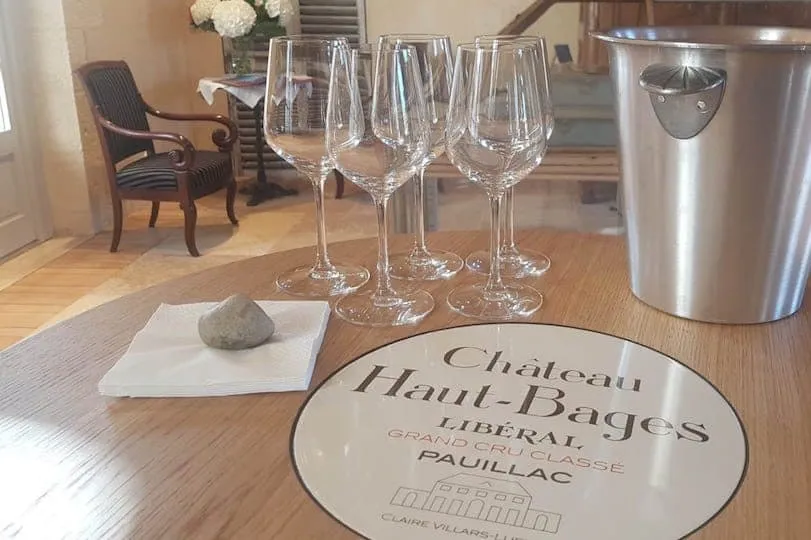
Château Haut-Bages-Libéral is run by two famous Bordeaux wine-growing families, the Merlaut and Lurton.
Claire Villars-Lurton is a woman pioneer in the Bordeaux wine industry, owning multiple châteaux in various regions around Bordeaux. All of which she has led to becoming organic certified. Since 2019, Château Haut-Bages-Libéral has been certified organic and has produced high-end wines with aging potential. To not miss on your Medoc wine tour.
Château Ferrière, Margaux
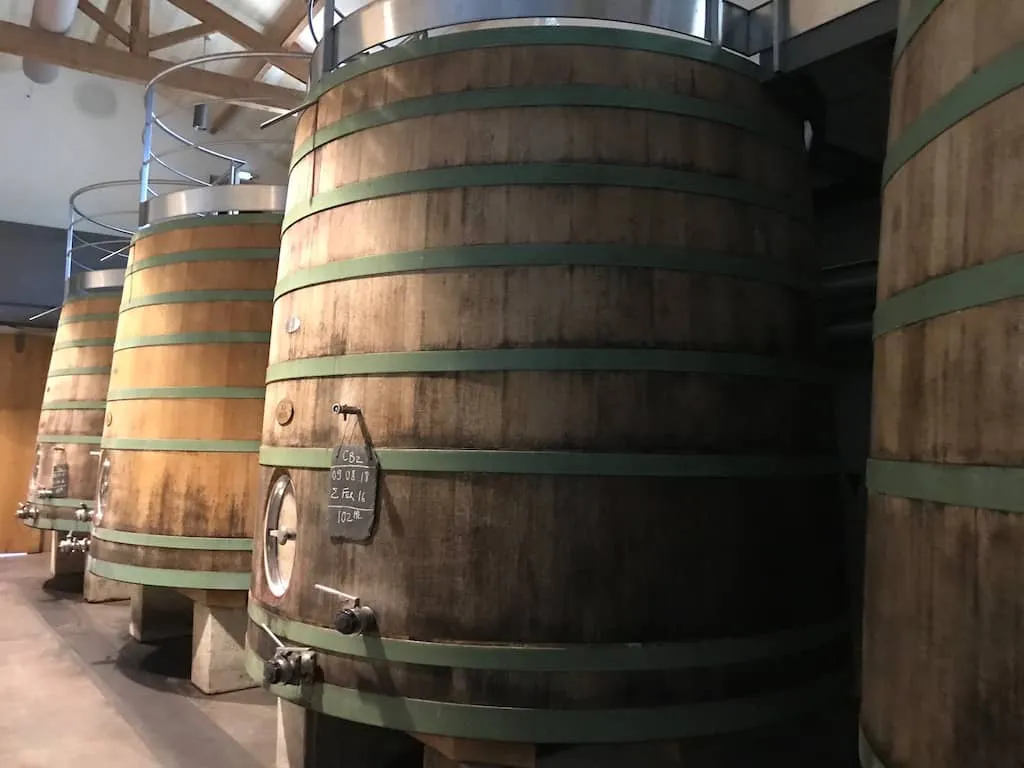
Owned by the previously mentioned Claire Villars-Lurton, Château Ferrière sits in the heart of Margaux and boasts a unique history. Today, the winery uses both organic and biodynamic wine-making principles.
During your tour, learn more about the ins and outs of organic and biodynamic winemaking. Finish off your visit with a tasting of their delicious organic wines.
Château Palmer, Margaux
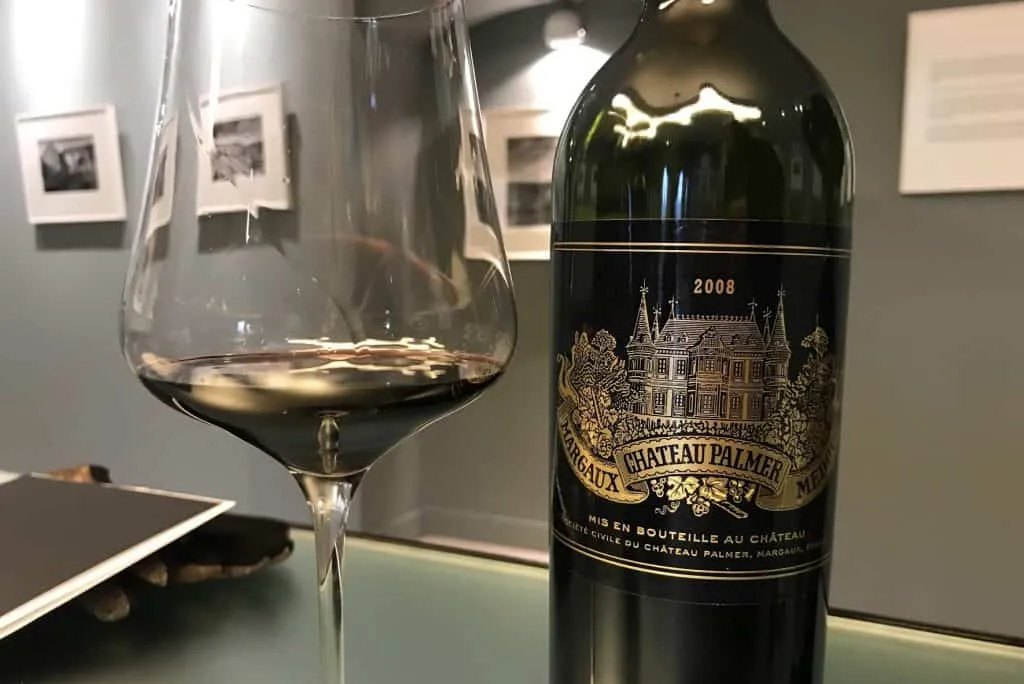
Château Palmer looks like it was plucked out of a storybook and boasts magnificent vineyard views.
In 2008, the winery first tested biodynamics as an experiment. Today, chemicals are no longer used in Chateau Palmer’s vineyards. You will see sheep, grasses, flowers, and special plants in the vineyards of this prestigious Margaux chateau.
*Château Palmer is closed for visitors until the end of 2023.
The Left Bank - Pessac-Leognan
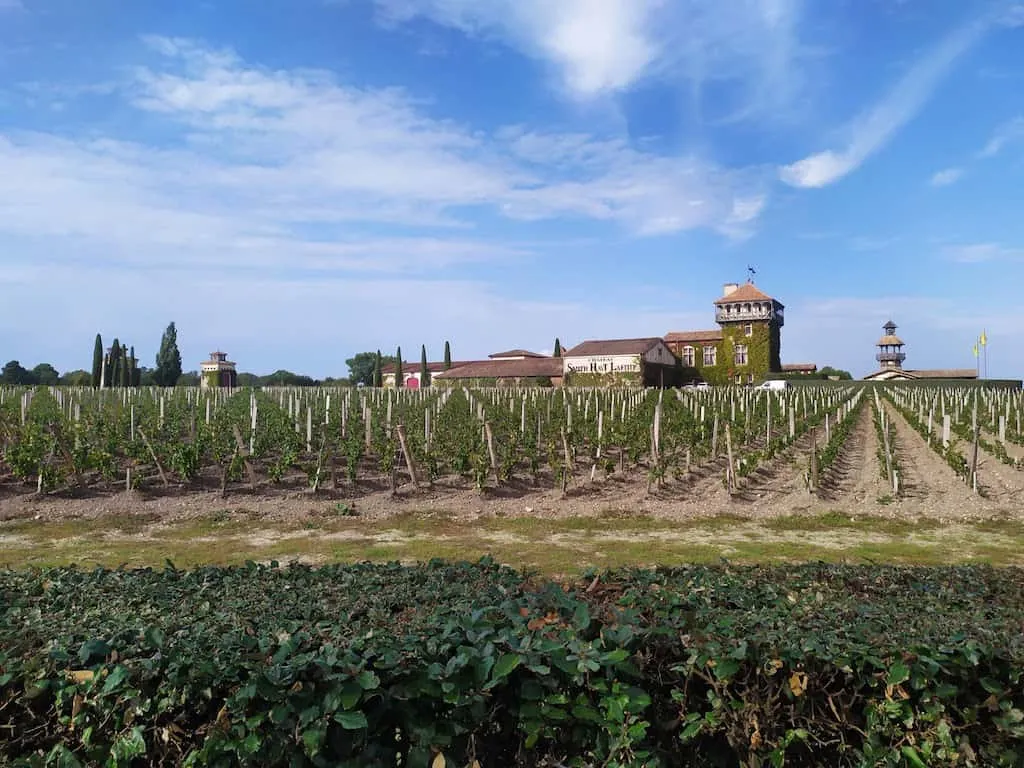
Surrounded by fields of wildflowers, forests, and beehives, Château Smith Haut Lafitte is a must-visit while in Bordeaux.
The vineyards and château are quite impressive, plus they have an onsite cooperage where you can watch them make their own barrels.
They also have a luxury five-star hotel in their vineyards that includes tours and tastings of Château Smith Haut Lafitte during a stay.
Château De L'Hospital, Portets, Graves
Château de L’Hospital is just thirty minutes away from the center of Bordeaux.
The chateau has been involved in organic farming since 2013 and certified since 2017 on all of the 40 hectares of their Graves vineyard.
Taste the terroir in these organic wines that are full of bold fruit flavors. Tour the château or spend the night in their high-end hotel.

Jessica Blanarik
Author
Jessica Blanarik is an American wine and travel tourism writer. She is currently receiving her master’s degree in Wine Tourism with the Wintour Erasmus Mundus program in Spain, France, and Portugal. She believes wine is not only delicious but also an important unifier of people and cultures. You can find more of her work at www.jessisjourney.com.

